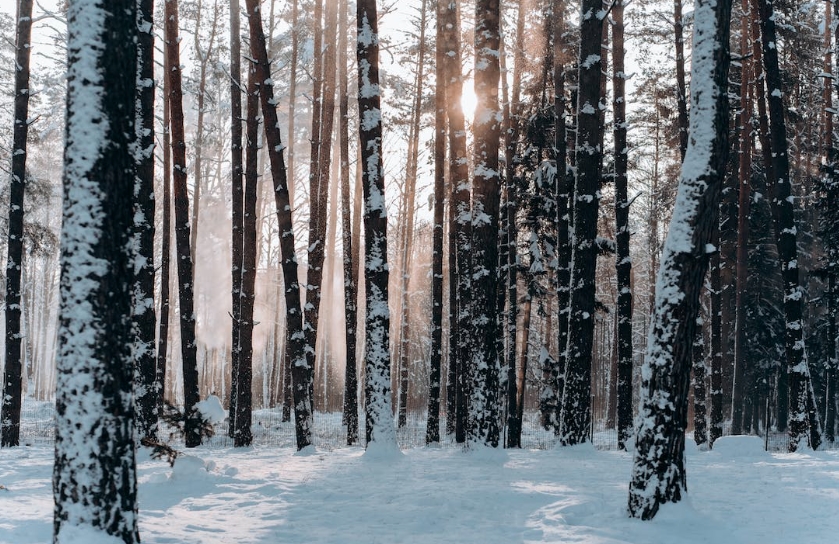Escape to Nature: Discovering the Beauty of the Outdoors is an exploration of the power of nature and outdoor activities to rejuvenate the mind and soul. Nature has long been a source of solace, inspiration, and peace. It is a place of refuge, an escape from the hustle and bustle of everyday life. Spending time in nature can help us to connect with ourselves and with the world around us, while providing a much-needed break from the stresses of modern life.
Outdoor activities such as hiking, camping, kayaking, and fishing are great ways to explore and appreciate the beauty of nature. They can also provide physical and mental benefits, including improved physical fitness, increased mindfulness, and enhanced social connections. Outdoor activities can also help to reduce anxiety and stress, while providing an opportunity to get in touch with nature and reconnect with the earth. Through outdoor activities, we can develop a deeper appreciation and understanding of the outdoors and its importance in our lives.
Escape to Nature: Discovering the Beauty of the Outdoors is a journey of discovery, of reconnecting with the natural world and discovering the beauty of the outdoors. It is an invitation to slow down and take the time to appreciate and explore the world around us. By taking part in outdoor activities, we can gain a greater understanding of the importance of nature and its impact on our lives. We can also gain a greater appreciation for the beauty of the outdoors, and the power of nature to bring peace and joy to our lives.

Exploring the Outdoors
Escape to Nature: Discovering the Beauty of the Outdoors is an exploration of the power of nature and outdoor activities to rejuvenate the mind and soul. Nature has long been a source of solace, inspiration, and peace. It is a place of refuge, an escape from the hustle and bustle of everyday life. Spending time in nature can help us to connect with ourselves and with the world around us, while providing a much-needed break from the stresses of modern life.
Outdoor activities such as hiking, camping, kayaking, and fishing are great ways to explore and appreciate the beauty of nature. They can also provide physical and mental benefits, including improved physical fitness, increased mindfulness, and enhanced social connections. Outdoor activities can also help to reduce anxiety and stress, while providing an opportunity to get in touch with nature and reconnect with the earth. Through outdoor activities, we can develop a deeper appreciation and understanding of the outdoors and its importance in our lives.
Escape to Nature: Discovering the Beauty of the Outdoors is a journey of discovery, of reconnecting with the natural world and discovering the beauty of the outdoors. It is an invitation to slow down and take the time to appreciate and explore the world around us. By taking part in outdoor activities, we can gain a greater understanding of the importance of nature and its impact on our lives. We can also gain a greater appreciation for the beauty of the outdoors, and the power of nature to bring peace and joy to our lives.
The Benefits of Outdoor Activities
Physical Health Benefits
• Improving Cardiovascular Health: Outdoor activities such as running, cycling, and swimming are excellent ways to strengthen and improve the heart’s health. Regular participation in outdoor activities can help to reduce blood pressure, lower cholesterol, and improve overall cardiovascular health.
• Strengthening Muscles and Bones: Outdoor activities help to build and maintain strong muscles and bones. Activities such as running and weightlifting can help to improve muscular strength and endurance. Additionally, activities such as rock climbing, hiking, and kayaking can help to improve bone density and reduce the risk of osteoporosis.
Mental Health Benefits
• Reducing Stress and Anxiety: Outdoor activities can be a great way to reduce stress and anxiety. Activities such as walking and running can help to clear the mind and provide an opportunity to escape from everyday worries. Additionally, activities such as nature photography and bird-watching can provide a sense of peace and relaxation.
• Boosting Mood and Happiness: Participating in outdoor activities can help to boost mood and happiness. Activities such as running and hiking can help to release endorphins, which are hormones that promote positive thoughts and feelings. Additionally, activities such as camping and kayaking can help to create a sense of connection with nature, which can help to reduce feelings of loneliness and depression.
Connecting with Nature
The importance of connecting with nature has been long recognized by many cultures. It is a way for people to reconnect with their inner selves and the world around them. Nature provides a sense of solace and peace, allowing us to step away from the hustle and bustle of modern life. Connecting with nature can lead to improved mental and physical wellbeing, increased creativity and productivity, and a greater sense of appreciation and respect for our natural environment.
There are many ways to connect with nature. Meditation and mindfulness are two popular ways to become more in tune with nature. Meditation can help to reduce stress, increase relaxation, and promote positive thinking. Mindfulness involves being present and paying attention to the present moment, allowing us to become more aware of our environment. Other ways to connect with nature include yoga, walking in nature, gardening, bird watching, and visiting natural areas.
Ecotourism is a responsible travel option that helps to promote the conservation of natural habitats and ecosystems. Ecotourism encourages travelers to experience nature in an environmentally sustainable way. It involves visiting natural areas, engaging in activities such as bird watching or fishing, and supporting local communities. Ecotourism helps to bring economic and social benefits to local communities while protecting the natural environment.
Environmental Stewardship
Environmental stewardship is the practice of responsibly caring for the environment, conserving resources and minimizing the negative impact of human activity. It is important for protecting the planet and preserving its resources for future generations. The goal of environmental stewardship is to ensure that the environment is managed in a sustainable way and that future generations will be able to enjoy it and benefit from its resources.
Ways to Reduce Impact on the Environment While Enjoying the Outdoors
• Reduce waste: Bring reusable containers for food and drinks, and bring reusable bags for carrying items. Avoid single-use plastics and disposable items whenever possible.
• Conserve water: Take shorter showers and turn off the tap when brushing your teeth. Use a bucket or a watering can instead of a hose when washing your car or watering your garden.
• Limit energy use: Unplug electronics when not in use, use energy-efficient light bulbs, and turn off the lights when not in use.
• Use eco-friendly products: Choose natural and biodegradable cleaning products and avoid products with chemicals.
• Choose renewable energy: Invest in renewable energy sources such as solar energy, wind energy, or geothermal energy to reduce your carbon footprint.
• Support conservation efforts: Get involved with local conservation groups and volunteer your time and resources to help protect the environment.
Supporting Conservation Efforts and Sustainable Tourism
• Support sustainable tourism: Look for eco-friendly accommodations when traveling and support local businesses that are committed to sustainable practices.
• Choose sustainable transportation: Whenever possible, walk, bike, or use public transportation instead of driving.
• Avoid activities that harm wildlife: Respect wildlife and do not participate in activities that can harm animals such as hunting, fishing, or animal rides.
• Buy sustainable food: Buy local and organic food whenever possible and avoid foods that have been produced using unsustainable methods.
• Plant trees and shrubs: Plant trees and shrubs to help absorb carbon dioxide and improve air quality.
• Recycle: Recycle paper, plastic, glass, and other materials to reduce waste and conserve resources.
• Reduce your carbon footprint: Use renewable energy sources, conserve energy, and reduce your reliance on fossil fuels.
Safety in the Outdoors
Importance of Safety when Engaging in Outdoor Activities
• Safety should always be a top priority when engaging in outdoor activities, as outdoor environments can present a variety of unpredictable hazards and risks.
• Outdoor activities can include camping, climbing, hiking, skiing, swimming, and many other activities, and even the most experienced outdoor enthusiasts must remain vigilant to ensure their own safety and the safety of those around them.
• Knowing the potential risks of a given activity and following safety guidelines is essential for having an enjoyable and safe outdoor experience.
Tips for Staying Safe in Different Outdoor Environments
• Know your limits and stay within them. Many outdoor activities can be challenging, and it is important to understand your own abilities and stay within them.
• If you are unfamiliar with an outdoor activity, it is important to become well-informed before engaging in it. Research the activity, observe experienced participants, and if possible take a class or get instruction from a qualified instructor.
• Always tell someone where you are going and when you plan to return. If possible, bring a friend or family member along with you.
• Wear appropriate clothing and gear for the activity, and make sure you have the proper safety equipment.
• Stay hydrated and carry plenty of water with you when engaging in outdoor activities.
• Be aware of your surroundings and watch for potential hazards such as wild animals, unstable terrain, and bad weather.

Common Injuries and How to Prevent Them
• Sprains and strains are common injuries incurred during outdoor activities. To prevent these injuries, it is important to warm up and stretch before engaging in physical activity, as well as to stay within your own physical limits and take breaks as needed.
• Muscle cramps can also occur during physical activity in the outdoors. To prevent muscle cramps, be sure to stay hydrated and take breaks as needed.
• Sunburns are also a common injury in the outdoors, and it is important to wear sunscreen, sunglasses, hats, and other protective clothing when outdoors.
• Heat exhaustion and heat stroke can also occur when outdoors. To prevent these conditions, be sure to stay hydrated, take frequent breaks, and stay out of direct sunlight when possible.
Conclusion
As we come to the end of our journey of discovering the beauty of the outdoors, we can’t help but feel a sense of awe and appreciation for the wonders of nature. We have seen the majestic beauty of the mountains, the calming waters of the ocean, and the lush green of the forests. We have also experienced the joy of a camping trip or a hike through the wilderness. We have felt a connection to the land and the people around us.
We can take away so much from our journey. We have become more aware of the need to protect our environment and the importance of preserving the beauty of nature. We have gained a deeper understanding of the interdependence of all living things and the vital role of nature in our lives. We have also been reminded of the joy and peace that can be found in experiencing the outdoors.
Escape to Nature has been an incredible journey, full of adventure and discovery. We have seen so many amazing places, witnessed spectacular sights, and had countless experiences that have enriched our lives. We have also gained an appreciation for the beauty and complexity of the natural world.
We hope that our journey has inspired you to take time to explore the outdoors and to appreciate and protect the environment. Nature has so much to offer, and it is our responsibility to ensure that it remains a beautiful and vibrant place for future generations to enjoy.
FAQs
1. What are the best outdoor activities for nature lovers?
Some of the best outdoor activities for nature lovers include hiking, camping, birdwatching, rafting, fishing, and cycling.
2. What are the benefits of escaping to nature?
Some of the benefits of escaping to nature include improved mental and physical health, increased energy levels, improved mood, and reduced stress levels.
3. What kind of safety precautions should I take when exploring nature?
When exploring nature, it’s important to be aware of your surroundings and wear appropriate clothing and footwear. Additionally, it’s important to carry a first aid kit, a GPS device, and plenty of water.
4. Where are some of the best places to escape to nature?
Some of the best places to escape to nature include national parks, nature reserves, and forests.
5. How can I find out more about nature spots in my area?
You can find out more about nature spots in your area by researching online or by asking local outdoor enthusiasts.
6. What should I bring on an outdoor adventure?
When going on an outdoor adventure, it’s important to bring the essentials such as a first aid kit, sunscreen, insect repellant, a GPS device, a map, plenty of water, and snacks.
7. How can I protect the environment while exploring nature?
You can protect the environment while exploring nature by following the “Leave No Trace” philosophy, being respectful of wildlife and the area, and avoiding disturbing vegetation.
8. What are some tips for taking better nature photographs?
Some tips for taking better nature photographs include using a tripod, getting up close to your subject, taking your time to find the best angle, and using natural light.
9. Is there a way to reduce my carbon footprint while exploring nature?
Yes, there are many ways to reduce your carbon footprint while exploring nature. These include carpooling, using public transportation, reducing your use of plastics, and choosing to stay at eco-friendly lodging.
10. What are the best tips for camping in the wilderness?
Some of the best tips for camping in the wilderness include being aware of your surroundings, avoiding contact with wildlife, packing the essentials, and following the “leave no trace” philosophy.


















